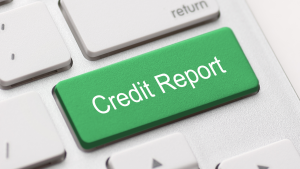Overview
Canada is undergoing a cost-of-living crisis, which makes life even more challenging for newcomers who are navigating an unfamiliar culture. In this article, we will look at five methods by which newcomers can improve their financial situation in Canada.
Method #1: Create and Follow a Budget
Having a budget is key to managing your finances effectively. The first step is to list your income, savings, and expenses. These amounts will represent your current financial situation. If you lack savings or if your expenses exceed your income, you know there’s an issue. There are multiple ways to budget.
Some popular methods include the 50/30/20 method, whereby you spend 50% of your income on needs, 30% on wants, and set aside 20%. However, if it’s not realistic to set aside 20%, aim for any amount of regular savings that you can manage. Even a small amount will accumulate over time, given consistency and effort. If no savings at all are possible, you will probably need to raise your income (see method #2) and/or lower your expenses.
Another method is the zero-based budget, whereby you allocate every single dollar of your income to a specific purpose.
Yet another is the envelope method, whereby you put cash in envelopes designated to various spending categories and only spend what you have in that envelope for that category that month.
All of these different methods are designed to manage your expenses efficiently while saving for the future. Choose the method that resonates with you the most and stick with it until your results improve.
Method #2: Increase Your Income
Increasing your income can seem like an impossible task in today’s volatile economy. Access to high-paying jobs can be limited. However, there are ways you could potentially increase your earnings. One is to ask for a raise at your current job. Another is to earn a promotion at your current job. Yet another is to retrain for a new career. Online courses and certifications are available in various tech fields, for instance. Not all tech jobs require programming skills. Some are more about project management, for example. You can earn certifications from Google and Amazon, which can make you job-ready in a relatively short time, given sufficient determination and dedication.
You might also consider supplementing your main income. You could start a side hustle or strive to generate passive income via investments and/or digital assets e.g. digital art or e-books. You could take on a part-time gig or a weekend gig. In short, there are many potential ways to increase your income, but it will take prioritization and creativity to make it happen.
Method #3: Improve Your Credit Score
As a newcomer in Canada, your credit history might be limited or lacking. Therefore, it’s important to start building a sound credit history as soon as possible. Perhaps the best way to improve your credit score is to make all your payments on time. Using your credit card responsibly and paying off your credit card balances every month will allow you to build a track record of reliability and high creditworthiness. This, in turn, will help improve your credit score. A high credit score gives you access to more favourable loan terms and may make it more likely that you will qualify for a rental or a mortgage.
Method #4: Save on Housing Costs
Canada is reeling from a major housing crisis. It’s not just a supply-and-demand issue. There are many regulatory barriers to building new and affordable housing, given the outsized and rapid population growth. Therefore, it’s important to manage your housing costs effectively.
You might want to go for more affordable housing options. For instance, instead of renting a one-bedroom apartment all by yourself, you might want to consider shared accommodations i.e. roommates or housemates. In another scenario, instead of purchasing a house in the Greater Toronto Area (GTA), which might well exceed your budget capabilities, you might want to opt for a rental.
Method #5: Build an Emergency Fund
According to Statistics Canada, one in four Canadians cannot afford an unexpected expense of $500. While some groups are more vulnerable than others, financial precarity is a widespread issue in Canada. Having an emergency fund is essential to protecting yourself against emergency situations like a job loss, car repairs, or a medical bill. Therefore, it’s important to prioritize building an emergency fund. Start as soon as possible and safeguard your future.
Ideally, you would save up at least three to six months’ worth of expenses. Start small and stay consistent. For example, $50 saved per week would result in $2,500 saved over 50 weeks, which would put you substantially ahead of many Canadians and give you some peace of mind. Pick an amount you’re comfortable with and allocate it to your emergency fund on a recurring basis until you build a sufficient financial cushion. Effective budgeting will be key.
Conclusion
If you need help covering an urgent expense, consider applying for a personal loan online via OntarioCASH. We don’t check your credit score or credit report during our quick and simple online application process.
Additionally, if you wish to improve your credit score, consider registering for Credit Verify. With the help of this advanced technology platform, you will be able to monitor your credit score and automatically catch mistakes on your credit report. The registration process is quick and easy.




